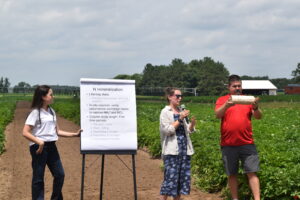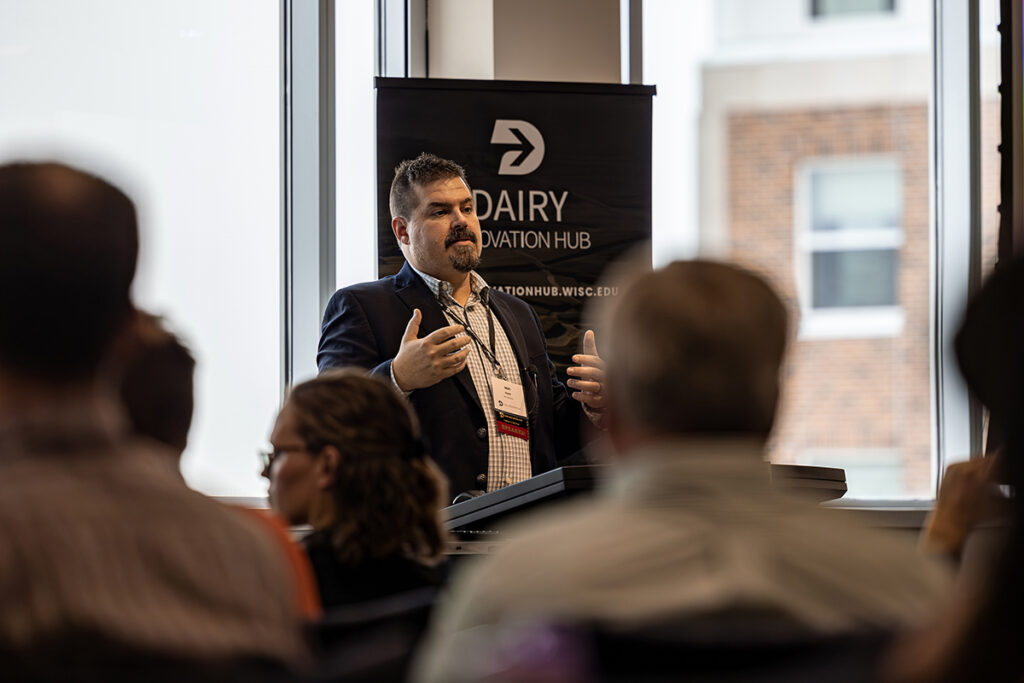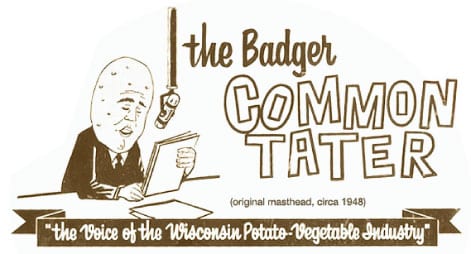By Joe Kertzman, managing editor, Badger Common’Tater

Having researched nitrogen and phosphorus, and carbon cycling and losses from agricultural systems, Dr. Matt Ruark committed to the University of Wisconsin (UW)-Madison as an Extension Soil Scientist and (at that time) Assistant Professor of Nutrient Management, in 2008.
Seventeen years later, Dr. Ruark is a familiar face in the Wisconsin potato and vegetable industry, and in 2023, was named the inaugural recipient of the Wisconsin Potato & Vegetable Growers Association (WPVGA) BCS Chair at the UW-Madison College of Agricultural & Life Sciences (CALS).
Dr. Ruark also led a $10 million U.S. Department of Agriculture grant addressing climate change mitigation and adaptation in the Great Lakes region, and most recently, was named faculty director of the Dairy Innovation Hub, which the state of Wisconsin is supporting to the tune of $7.8 million per year.
The Dairy Hub harnesses research and development at the UW-Madison, Platteville and River Falls campuses to keep the state’s $52.8 billion dairy community at the global forefront in producing products in an economically, environmentally and socially sustainable manner.
“As it relates to potatoes, I’ve been able to be a lot more focused on understanding not only how potato responds to nutrients,” Ruark says, “but also nitrogen uptake and patterning, how the crop grows, and what the optimal times are for nitrogen application.”
How has your role and career progressed at UW-Madison over the past 17 years? Over the span of my career, I’ve had the chance to conduct research focused on a variety of subjects such as fertility and water quality, often with support from national grants and state-level programs.
Now I’ve moved into some small administrative roles in organizations such as the Dairy Innovation Hub.


